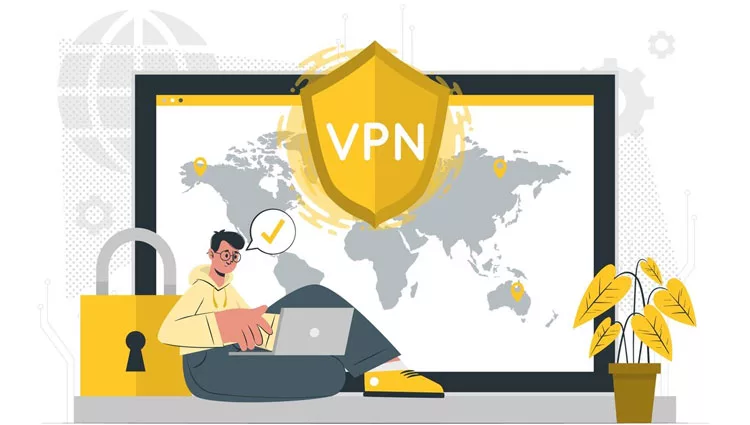On average, companies save roughly $11,000 per person a year on employees who work. Studies also indicate that remote workers are more productive when they remain home. With remote work becoming more common, it’s important to ensure that remote workers are able to connect to the network without compromising sensitive data.
Having a virtual private network (VPN) is essential for protecting company data and sensitive information.
Businesses have been using VPNs for well over a decade, but it is only recently that it has become an essential tool for remote work. By encrypting the network traffic of every remote worker, a VPN ensures that sensitive data is safe from cybersecurity threats. It provides secure access to all of your company’s networks, even when people are connecting from public networks.
VPN Basics
Online VPN is a security tool that protects traffic between two different points, regardless of where those points are. The encryption process makes it virtually impossible for anyone not on the network to read the data and information transmitted between the two different points. With cybersecurity threats constantly shifting and changing, a VPN provides a reliable way of shielding each transmission from anyone who is not authorized to access the network.
Why VPNs Are Necessary for Remote Workers
Individuals benefit from an online VPN for work because it hides their online activity. There are numerous personal benefits to this, including having better protection when accessing financial information. However, it is a critical tool in protecting work data, too. One of the biggest benefits of working remotely is being able to work from anywhere. If you have to access your work from a public place, such as a restaurant or café, your VPN will ensure that the people around you aren’t able to see what you are doing.
For companies, providing VPN tools to all remote workers is the best way of protecting important information and company secrets. This allows you to benefit from having remote workers (and their increased productivity) and lower site costs without sacrificing the security of your data.
The Pros and Cons of VPNs
The number of pros definitely outweighs the number of cons for a VPN. However, it is not a universally ideal solution. There are some scenarios where it is best to use more secure methods of connecting.
The following are the primary benefits of using a VPN.
- Access controls so that companies can determine who is able to access their networks, as well as set the configurations for different levels of access.
- Enhanced cybersecurity through the use of encryption.
- Ensures many compliance requirements are met for dealing with sensitive information.
- Improved collaboration as people don’t have to take extra measures to ensure their discussions and files are not compromised during transition.
- Secure access from anywhere.
The many pros often outweigh the problems with a VPN. But if you are in an industry with strict compliance requirements or sensitive data that requires more robust security, this is not the right solution.
The following are the drawbacks of online VPNs.
- It does not offer complete user anonymity.
- Some countries have banned VPNs.
- The best VPNs can be costly.
- One of the sacrifices made for constant encryption is that connectivity can get slowed.
- Using a VPN from a mobile device increases how much data the device uses.
In most cases, a VPN is a cost-effective and efficient way of providing robust cybersecurity for remote workers. However, it is important to verify that the drawbacks do not make the security tool less than optimal for your unique needs.
What to Look for When Selecting a VPN?
With a long history of use and booming popularity, there are hundreds of different VPN providers and several types. When choosing the right type of VPN for your company, there are a few things to consider to ensure you choose the right VPN for your needs to work remotely.
- The number of devices that can connect and the scalability of the network. – The reliability of the service.
- Ease of setting up the network.
- Ease of integration with other security measures.
- The strength of the data encryption process (the more secure the encryption method, the higher the cost).
- How advanced the security protocols are, and if the product offers multi-factor authentication.
- Customer support for issues.
VPNs have become popular for good reason. However, with so many different types, finding the right solution requires some dedicated research time to ensure you get the best results.

